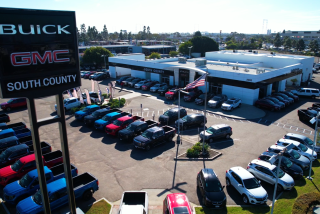Hyundai starts reporting fuel economy of cars sold monthly
Hyundai Motor America is adding to the plethora of monthly statistics it reports: the average mileage per gallon for the cars it has sold.
That sales-weighted number serves as a yardstick for how close automakers are getting to the new fuel economy standard, which federal regulators have set at 34.1 miles per gallon for 2016 vehicles. The 2012 model year fleet requirement is 29.7 mpg.
It’s a slick marketing move that works to the advantage of the South Korean company and is unlikely to be adopted by other automakers, said Jessica Caldwell, an analyst with auto information company Edmunds.com.
“They are challenging other automakers to be more forthcoming,” Caldwell said. “They have an advantage going up against Chevy, Ford or even Toyota.”
For last month, Hyundai said Thursday, its sales-weighted average was 34.7 mpg, already above the 2016 requirement. The figure was based on a sales mix for the month of 86% 2011 and 14% 2010 model year vehicles. The automaker said that was a big jump from its most recent official level of 31.7 mpg for the 2009 model year.
But Hyundai has a fuel economy advantage because it doesn’t sell pickup trucks or big SUVs, the least fuel efficient vehicles.
“Hyundai is not a full-line manufacturer, so it is easy for them to make those claims. But the comparison is not fair,” Ford Motor Co. said in a statement. “We offer a full family of products — cars, utilities and trucks, small, medium and large — with every new vehicle delivering the best or among the best fuel efficiency in its segment.”
“That is the commitment we will continue to deliver and communicate to all of our stakeholders each and every day,” the statement said.
Ford reports the data to federal regulators but not publicly.
Even car-focused automakers, such as American Honda Motor Co., are balking at releasing similar corporate average fuel economy information.
“American Honda does not currently and does not intend to release monthly CAFE estimates,” said Christina Ra, a Honda spokeswoman.
Toyota Motor Co. and General Motors Co. also said they would not match Hyundai’s move.
Regulators at the Department of Transportation and the Environmental Protection Agency declined to comment on whether releasing sales-weighted fuel economy figures would encourage gas savings and reduce emissions, goals of the fuel economy rules.
Hyundai was the fastest-growing major car brand in the United States last year. Its sales hit a record 538,228 vehicles in 2010, up nearly 24% from a year earlier and more than double the growth rate of the industry.
But it still garnered less than 5% of the market, not enough to force the industry to make big moves in what automakers report, Caldwell said.
And it’s far from clear whether consumers are even interested, she said.
“People are concerned about the fuel economy of the vehicle they are buying rather than some fleet fuel economy level,” Caldwell said.
Hyundai said in 2008 that it planned to reach at least 35 mpg for its fleet by 2015.
“Since then, we’ve redoubled our efforts to introduce affordable, fuel efficient technology across our lineup,” said John Krafcik, Hyundai Motor America’s chief executive. “And now we can confidently project achieving a 35-mpg average several years early.”
More to Read
Inside the business of entertainment
The Wide Shot brings you news, analysis and insights on everything from streaming wars to production — and what it all means for the future.
You may occasionally receive promotional content from the Los Angeles Times.











